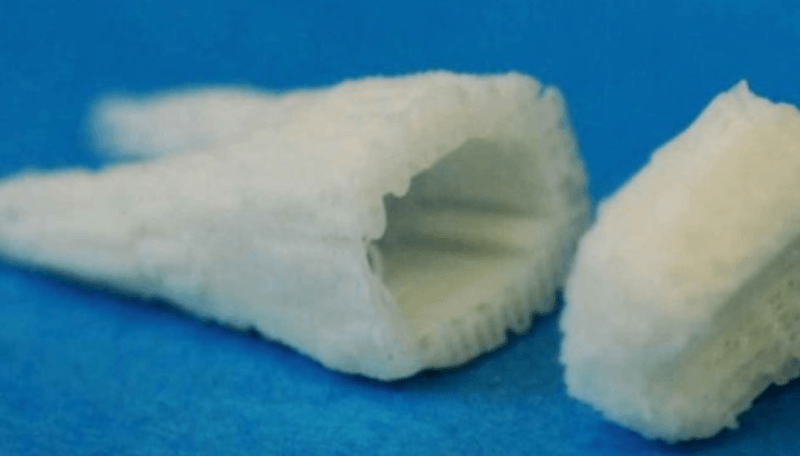
Stem cells in teeth are a well-researched field today. The world of dental implants is advancing with the potential of stem cell dental implants, offering a more personalized and natural solution for tooth replacement. While not widely available, these implants have the potential to revolutionize dentistry by regenerating damaged or lost teeth from a patient’s own stem cells. Research is ongoing to perfect this technique for safety and effectiveness. Traditional dental implants remain a highly successful option for replacing missing teeth and are widely available. If you’re considering dental implants, it’s essential to consult with your dentist to explore the most suitable options based on your needs and the current state of stem cell implant technology.

Are Stem Cell Dental Implants Available?
I. The Science behind Stem Cell Dental Implants
- Stem Cells for Regeneration: Stem cells can transform into various cell types and are found in sources like bone marrow, adipose tissue, and dental pulp.
- Dental Stem Cells: Dental pulp contains stem cells capable of differentiating into dental tissues.
- Research Focus: Dental stem cells are explored for their application in dental implant procedures.
II. Stem Cell Dental Implant Process
- Cell Isolation: Dental stem cells are obtained from the patient’s dental pulp or a dental stem cell bank.
- Scaffold Creation: Cells are combined with a biocompatible scaffold to mimic a natural tooth root structure.
- Implantation: The scaffold with dental stem cells is placed into the patient’s jawbone.
- Regeneration: Dental stem cells differentiate and regenerate required tissues for implant integration.
III. Potential Benefits of Stem Cell Dental Implants
- Autologous Source: Using the patient’s dental pulp eliminates the need for invasive procedures to obtain stem cells.
- Enhanced Healing: Dental stem cells enhance tissue healing and regeneration, improving implant stability and longevity.
- Addressing Bone Density: Stem cells can stimulate bone regeneration, potentially overcoming limitations of poor bone quality for more eligible candidates.
IV. Conclusion
- Promising Future: Stem cell dental implants hold promise for improving dental implant success, longevity, and addressing bone density challenges.
- Ongoing Research: While in early stages, this approach could revolutionize implant dentistry in the future.
Key Takeaways: Are Stem Cell Dental Implants Available?
- Stem cell dental implants are not yet available for regular dental procedures.
- Research is being conducted to explore the potential of using stem cells in dental implant procedures.
- Stem cells have the ability to regenerate tissues and could potentially improve the success rate of dental implants.
- Current dental implant techniques are highly effective and widely used.
- It’s important to consult with a dentist for the most appropriate dental implant options.
Frequently Asked Questions
1. What are stem cell dental implants?
Stem cell dental implants merge traditional dental implant procedures with stem cells to boost tissue regeneration and procedure success. Stem cells, capable of becoming various cell types, are integrated into the implant site, potentially improving outcomes and expediting healing.
2. How do stem cell dental implants work?
Stem cell dental implants involve the introduction of stem cells into the implant site, sourced from the patient’s body or dental pulp. These stem cells promote tissue regeneration, stimulate bone and gum tissue growth, resulting in stronger implant stability, better tissue integration, and enhanced overall success of the dental implant procedure.
3. Are stem cell dental implants widely available?
Stem cell dental implants are an emerging technology under ongoing research and clinical trials. While not widely available, it’s advisable to consult with your dentist or oral surgeon to assess suitability or inquire about clinical trials and specialized facilities that may offer this innovative approach to dental implants.
4. What are the potential advantages of stem cell dental implants?
Stem cell dental implants offer benefits such as faster healing, reduced complications, and long-term success. They can potentially regenerate bone and gum tissue, making them advantageous for patients with poor bone density or gum recession. This regenerative potential enhances both aesthetics and function of implant-supported prostheses.
5. What is the future outlook for stem cell dental implants?
The future of stem cell dental implants is promising with ongoing research to improve techniques for stem cell harvesting and implant integration. Despite their potential, this technology is still in early development, and widespread availability may take time. As advancements progress, stem cell dental implants have the potential to revolutionize dental implantology in the future.
The Future of Stem Cells | Types, Applications, Grow Human Teeth!
Final Thoughts
Stem cell dental implants show remarkable potential for tissue regeneration and natural tooth regrowth, but they are primarily in the experimental stage, limiting their accessibility. While not widely available now, ongoing research and technological advancements suggest a promising future for these innovative implants. The dental field could be revolutionized by offering a more natural and enduring solution for tooth loss. Staying informed about the latest developments and consulting with dental professionals is vital while we await broader availability. In conclusion, although currently not widely accessible, the continuously evolving field of stem cell dental implants holds substantial promise for the future of dentistry, offering exciting potential for revolutionizing tooth replacement methods.
Call or Book appointment online
:Ace Dental Care Alpharetta office: 678-562-1555 - Book Now
Ace Dental Care Norcross office: 770-806-1255 - Book Now
Disclaimer
This blog post was generated by artificial intelligence. The content of this post may not be accurate or complete, and should not be relied upon as a substitute for professional advice. If you have any questions about the content of this post, please contact us.
We are constantly working to improve the accuracy and quality of our AI-generated content. However, there may still be errors or inaccuracies. We apologize for any inconvenience this may cause.





